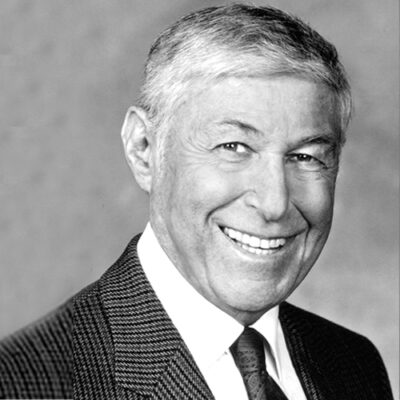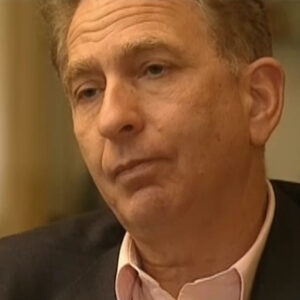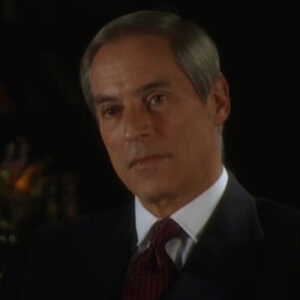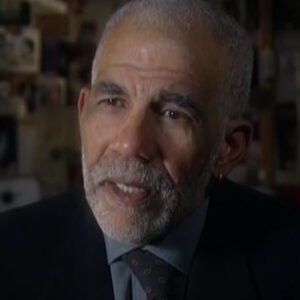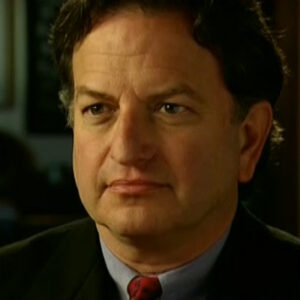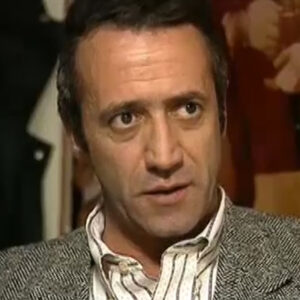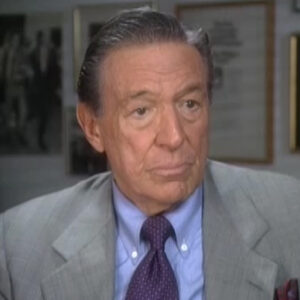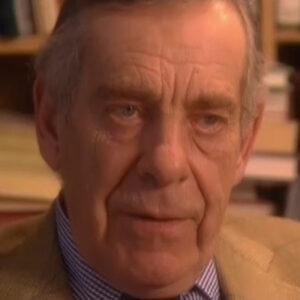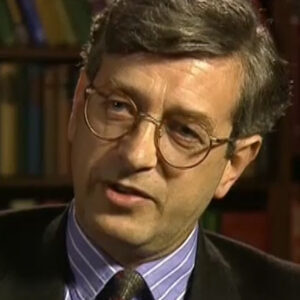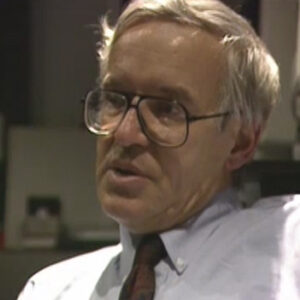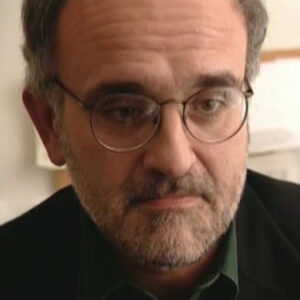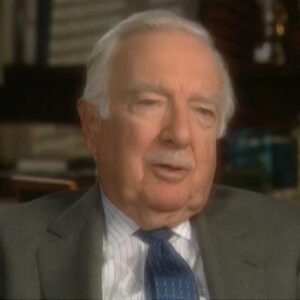Speaker So last time we saw you, you were in the booth where Steve was recording his the show, the program, the broadcast back in the control room, where were you on Sunday night?
Speaker I was home watching it with actually my my wife was I was watching with my kids. Yeah. And are they a good audience? They’re terrific audience, although they are 14 and nine. Oh. So the 14 year old certainly is old enough and the nine year old has opinions on pieces. Really. Do you have an opinion on this. She said it was a good piece. She did. And a 14 year old, she said, OK, she’s 14. The question was a clear enough for all of them.
Speaker It was, but then, you know, the family, they hear you so the kids are interested and they talk to you about it anyway, so they know what the story’s about before you go in, because they’ve heard you complaining about it or worrying about it or, you know, wrestling with it for six weeks or seven weeks.
Speaker Yeah, well, you must be very pleased when you came in here on Monday, were you not?
Speaker There’s always that awful feeling of chii, we were so careful with it, we were so careful to get it right, is there going to be a message from somebody that there was some fact somewhere that we missed? And so when you get through like it’s not Monday morning when you’re playing, it’s Monday about noontime when nobody calls and you go, we got it right.
Speaker Did you get a phone call this weekend from Don or from Steve?
Speaker No, no, but that doesn’t usually happen. Don was happy with it. I talked to Steve on Monday because Senator Moynihan called him to say that he thought he’d been treated very fairly. And it made us feel good because Senator Moynihan had taken off his microphone and walked out. And during part of the interview.
Speaker Yeah. Can you tell us about that? I did.
Speaker It was just one of those things where Steve asked what we thought was a sort of a straightforward question, but it was a question quoting a former member of the CIA saying that a plan that the senator had come up with for National Declassification Center would be an inappropriate use of government money because it would be another bureaucracy at a time of shrinking government. And the question was like that. And Moynihan sort of leaned forward and said that he didn’t want to distinguish. Anybody would have that opinion with an answer to his microphone and stood up mid interview. Then what? He started to walk out of his office, and then he leaned against the side of his chair and told us this wonderful, wonderful anecdote about his opinion of some of the secrets that the CIA had been keeping and where he mentioned an assessment the CIA had done of the East German economy in 1987 and said that estimated the per capita income of East Berliners as higher than the per capita income of West Berliners and that any cab driver in Berlin could have told you that wasn’t true and that any cab driver in Washington could have told you that wasn’t true. But if you were a gates out in Langley, you were going to believe it. And then he walked out.
Speaker But there were you. What you do.
Speaker Well, by that time, we pretty much had the interview and we were he I think he’d just decided that he’d spent enough time discussing the subject with us.
Speaker How did you feel? You might have told me this in our last interview, but I honestly haven’t had time to look at. I’ve shot over 35 hours of film that I haven’t had time to just open. So forgive me if I’m asking you a question that you’ve already reflected on, but or even if you mess up.
Speaker It’s there within the next paragraph.
Speaker Exactly.
Speaker All right, so anyways, what I was going to ask you is, can you tell me a little bit about how this story be interesting to hear about how you found it?
Speaker I didn’t find it up. The way the shop has set up the correspondence really are the managing editor of their own shops, Steve Kroft, on the story. I think Steve bumped into Terry Anderson at an investigative journalists meeting of some kind and had a conversation with him. And this whole business of Terry trying to find out what the government knew about his captors and about what the government understood about Islam came up in this conversation Steve had. And Steve was absolutely captivated by it and came back and told me about it and asked me if I’d be interested in doing it. This was was a gift from Steve Kroft as well as a producer around here.
Speaker I think that really is a gift, isn’t it?
Speaker It’s terrific. I’m sorry. That’s all right.
Speaker Frank Devine. Hi. Hi, Dan.
Speaker No, it’s OK. I’ve got a I’ve got a camera crew here from Channel 13, but go ahead, put it if no problem.
Speaker That’s what’s up.
Speaker I don’t know what it is, it’s yeah, it’s national, it’s an American masters. They’re doing that. Don Hewitt, they just popped into the offices of identify who Senator Moynihan is press secretary on. They were asking me questions, actually, about this piece.
Speaker Yeah.
Speaker The answer the answer is we did really, really well, we are we’re eigth for the week.
Speaker I’d be delighted to. Good.
Speaker That’s terrific, yeah, because it was well worth his time were they were just asking me about him walking out and I said it was just he decided to give us enough time, I think. Dan, you’re the press secretary, I’m not.
Speaker OK, I’ll give you a call and then fax more, I’ll be happy to. OK, bye bye.
Speaker Speaking of Senator McCain, exactly, exactly, they must be we coordinated that just for you. Thank you. That’s very kind of you looking for the numbers?
Speaker No, I don’t think that that I mean, everyone talks about here how difficult it is to find stories and when you’re in between productions, how hard it is. I would imagine that when your correspondent comes to you and says, here’s a story you want to do, it must be a gift.
Speaker It’s wonderful. Esteves like that. I mean, Steve works very hard at it and generates a lot of his own stories and. There are never any assignments, so you always have the option of saying not not for me, but if I know after nine years he pretty much knows what your tastes are going to be if he raises it. And the story, who suggests to me he might not offer to another producer and vice versa, depending on their, you know, their interests.
Speaker I was looking at the list of stories that that you have produced over it. I mean, I’m sure it’s just a partial list, but over the years that exists. Well, we made the list. We made the list. And it only starts with nineteen ninety one. Is that the year you came here?
Speaker I’ve been here since 89, but I’ve been I was associate producer for two seasons, so I was just kind of looking over this list.
Speaker And you have done I mean you’ve done a tremendous amount of different types of stories. But I was thinking about you did Seinfeld and you did Camela Ceglia. We’ll tell you how you pronounce your name.
Speaker PJ O’Rourke, Rob Reiner, various people. And I remember Don said to me that the profiles that people do are some of the hardest thing for us to do here.
Speaker Steve talked about degree of difficulty as though you were doing a dive when you’re doing a story here. And yeah, profiles are like that because they don’t have beginnings, they don’t have middles, they don’t have ends. And so you have a whole lot of material as material that you have no clear way of arranging. And so it becomes a wonderful jigsaw puzzle to try to figure out how to tell a story when you have a person who is the story rather than something that progresses in a logical way.
Speaker And also, it must be difficult to figure out, as Don said, you can’t just point the camera to someone. You have to figure out what is the story that you’re telling. You have to have to understand them first. Do you want to give me an example from someone here and give me an example of how it became a story and what problems you had to encounter or maybe have what everyone’s input was?
Speaker Gosh, I wish I could do that off the top of my head. But you can’t that’s OK.
Speaker I’m sorry, I, I was worrying about Seinfeld, I’ve seen it and I watch him all the time. So I was wondering if you had any insight into that, how that particular broadcast was done.
Speaker Jerry was sort of reluctant to do it at the very end, at the very at the very end, I mean, the last possible moment to say, please don’t come out here, please don’t do it. I would already I’d already gone to Los Angeles and I had Steve Steve doing another shooting. He was coming in from someplace else, I think. And the night before the first interview. Jerry wasn’t so sure he wanted to do this anymore, because I think it’s suddenly. Registered that this was going to be a fairly intrusive process if this wasn’t an Entertainment Tonight, you know, BOP in BOP, I would get a couple of sound bites and. It took sort of a nice long conversation over over drinks in a hotel with with Steve and Jerry and I was sitting there and a friend of Jerry’s was there to sort of get him to the point where he was, again, comfortable with the idea of doing this. I mean, it was just at the very last moment. Oh, my God, I’m not so sure I want to do this.
Speaker After all, is this that happened a lot.
Speaker Not at the very beginning, it’s usually when people have decided they’ve had enough of us partway through, you know that more than I do, probably. Well, certainly having been here, I’m getting that impression.
Speaker Joe Allagash said to us that and I talked to him the other day and he said that this place is like five little companies competing against one another. What are your feelings about that?
Speaker Well, that’s how we’re set up. That’s that’s the genius of 60 Minutes. You don’t worry about Primetime Live or Dateline or some other broadcast. You worry about what Mike’s doing or what Leslie Sharp’s doing or, you know, do they have something really terrific? And Ed Shehab. And why didn’t I think of that? And why didn’t we get the Blue Shield in first?
Speaker And, you know, the computer beeps and the blue sheets come up, you say, oh, man, you know, I saw it in the paper. It never occurred to me to take that tag on it. Why didn’t I get that in? Wait a minute. The blue sheets come up on the computer when when you get mail. Every so often when we get out of my computer, you don’t mind. So stop me if you’ve seen this one before. No, I haven’t.
Speaker Get out of the main thing.
Speaker And say this afternoon’s mail beeped and it was from Cathy Ryan, who, among other things, worries about our computers and our blue sheets. And right up, here’s mail from Kay Ryan, new blue sheets, number 74, 96. So you look at it, you say, well, what’s up here? So they can get out and see what are the news stories that have been had, claims take to them, and in this case it’s a teeb for Steve and an associate producer, Steve probably put in is one from Tom Foreman for Steve. Here’s one of Bob Anderson Mike Wallace proposal. So you sit there and you know what everybody else has decided or stories that they ought to think about ease and and Mike’s profile for Abby.
Speaker And you look at them, Harry Moses Morley is a piece of John Tiffin in London, so you look at them, say, Oh gee, you’re too fat Lady said That British thing I’ve seen on public TV, Tiffen decided might be worth the story. Well, he’s going to look into it. Doesn’t mean he’s going to do it necessarily. Why didn’t I think of that or.
Speaker Oh, my gosh, you know, so then once that happens, then you lay off that story. Is that how it works?
Speaker They’ve staked to claim to it. It’s theirs for six months. For six months. Yeah, it used to be longer and now it’s six months. So you know what the other shops are doing once they’ve staked their claim.
Speaker So when you talk about the competitiveness, you’re saying that there’s not so much you can. Well, explain to me where the competitiveness comes to mind.
Speaker This place getting the good stories and it’s among the shops. Can you can you come up with a great idea or deliver a really wonderful piece ahead of everybody else? Because you’ve got these people, you know, up and down the halls of the former bureau chiefs and a Pulitzer Prize winner down there, you’re all trying to find the next great story for your correspondent, for your team and get it on. And that that’s competition. And it’s once the blue sheets approved by Phil and Don and Josh, it’s yours to pursue or to decide that you don’t want to pursue it for six months and then to deliver a product into that screening room that they can see and take a look at and see if they can find a way to make better. But. These are five little production companies with a correspondent and four producers and four associate producers and the editors we work with who are. Really competing among ourselves for for the good stories and to turn them out and to have people come in on a Monday morning and say, gee, I saw that last night. It was a great broadcast. It worked well and that peace fit in.
Speaker People say that Abby said to me that used to be you’re only as good as your last story, but now you’re only now they say that you’re only as good as your next story.
Speaker Yeah, I suppose the afterglow doesn’t last too long. By Tuesday, you better have your next one underway. Monday, you can kind of smile and thank everybody when they tell you they like this, they did.
Speaker You have a next story, Bob Hughes? We’re doing a profile. So I’m up to here on a man who’s who’s an art critic, which. Is a, you know, an odd one to do it again and one that it’s kind of challenging to think about how you do a story about the world’s most powerful architect.
Speaker I’m actually surprised this morally story.
Speaker Yeah, but we probably not do it the way we would because we probably won’t do it as a story about art. We’ll do it as a story about a grand eccentric who’s the best that there is in his field. And we’ll do it the way that we profile a great surgeon or a great opera singer or great comedian. So it morally would do a do an art piece, I’d imagine. And this won’t be this will be a character piece.
Speaker Interesting.
Speaker I was going to ask you about the the lifespan, and I don’t mean lifespan in terms of life and death, but of a sort of a 60 Minutes producer, seems like you all work at a fairly hefty pace.
Speaker How long can one last in this job? I hope forever.
Speaker Where where do you go from here? You know, you see people have been here away from here for years and they always have a comma after their name is Commerce, former 60 Minutes producer, comma. And it would be terrible to think that you spend the rest of your life as a former 60 Minutes producer when you can be one.
Speaker But it seems like I mean, people have said that most producers last year between I know you’ve already lasted longer than that, but between three to five years and that it really wears you down that to keep up with the pace of it is very, very difficult. Do you not find that at all?
Speaker It has its moments, but where else would you rather be? Well, I mean, that’s that’s what it comes down to. You there are no assignments. There are no meetings. There are only the sort of loosest of quotas in the sense that you do know you have to have a a reasonable amount of stories done in a season. But it’s not something. I’m sorry.
Speaker That’s all right. It’s probably wrong. No, it’s Frank. Yes.
Speaker Could you ask him just to stand by?
Speaker I’m in the middle of doing something with a crew from Channel 15 back where Pat’s brother, my wife’s brother and sister in law, riding home with me. They’re visiting California outside. Where there are no meetings, there are no assignments, there are no hard deadlines in the sense of, you know, you must have this done by a certain date and put it on, even if you’re not proud of it here, they’re going to, you know, get it right. It’s it is it’s sort of nirvana for for a news producer.
Speaker Yeah, well, it’s true. What do you have ambitions beyond 60 Minutes?
Speaker No, not particularly.
Speaker Maybe someday, someday they’ll catch up with me and you’ll find me out for the Fakher that I am and tossed me out of here not to go find a job someplace, a teaching broadcast news at a community college, I guess.
Speaker Anyway, I know you have to go. We’re going to just do a couple of rehearsal shots right here. And then unless you have something else that you want to tell me right now or know if you’re happy. I know what I want you I want you to repeat itself and think for me because I felt that in the hallway you were a little kind of rushed. We were talking about the combination of programs that were chosen for this past Sunday for the pieces on last Sunday’s broadcast were.
Speaker Well, that’s that’s the sort of producer stops for the south.
Speaker That the combinations on the broadcast are sometimes wonderful. Last Sunday’s broadcast we had this piece on the Kennedy cousins was followed by our piece on government secrecy and then into this marvelous piece that Lesley did with Kathy Olian on people with I think it’s Williams syndrome, which is a brain disorder that makes them musical and jolly and very special in a lot of ways. It was a motley piece. I’m sorry.
Speaker I know. No, I just want to it is a moral. This is important that I’m so sorry. Thank you.
Speaker Because she hasn’t worked with Leslie this season. No, I just didn’t want to. Oh, it was nice what you’re saying. And I couldn’t use it anyways. We’re saying that with Ed Sullivan. I think the question was the choosing of the pieces.
Speaker I mean, it seems like sometimes they make brilliant choices as various kind of combinations of things.
Speaker What I take this on this week tape, this Sunday’s broadcast, we ended up with a broadcast that included profiles of the Kennedy cousins of Bobby Kennedy’s daughters and sons, a piece on government secrecy and a piece on Williams syndrome that Morley did with Kathy Olian about people with a brain disorder which makes them musical. It’s sometimes like The Ed Sullivan Show, you know, where Ed would bring on the Russian ballet about the follow that up with an opera star, Freddie and the Dreamers and Senor Wences, if you aren’t grabbed by one 60 Minutes piece.
Speaker Wait 12 minutes, there’ll be another one and it’s going to be wonderful and about a whole different thing in the world, and it is sort of you feel like, gee, this is Sunday on CBS and we’re keeping up that kind of tradition.
Speaker Well, it is. And it’s also like Don’s idea about it being like Life magazine because, you know, Life magazine always covered the war and they covered celebrities and they covered families and, you know, things in your neighborhood. So, I mean, it had our world.
Speaker And it’s got all kinds of aspects, and it’s fun to do the back of the book.
Speaker It’s fun to break news and we get to do it all.
Speaker Since you said it’s our world. I always felt that there have been 30 years of old world as seen by 60 Minutes. It is can you kind of reflect that back to me a little bit?
Speaker There’s.
Speaker This broadcast mandate. Repeat, you stop me, if you’ve heard this over and over was make us proud. I think that was what Nixonland had said to Don. And what we’ve been able to do is at that point, our only mandate is to make them proud. We can go anywhere in the world, meet anybody just about we want to meet, ask any questions we want to ask and. Feed this wonderful diversity of writers and newsmakers and serious topics and, you know, the Muppets through our prism and presented on Sunday evenings, and it’s just a nice opportunity.

